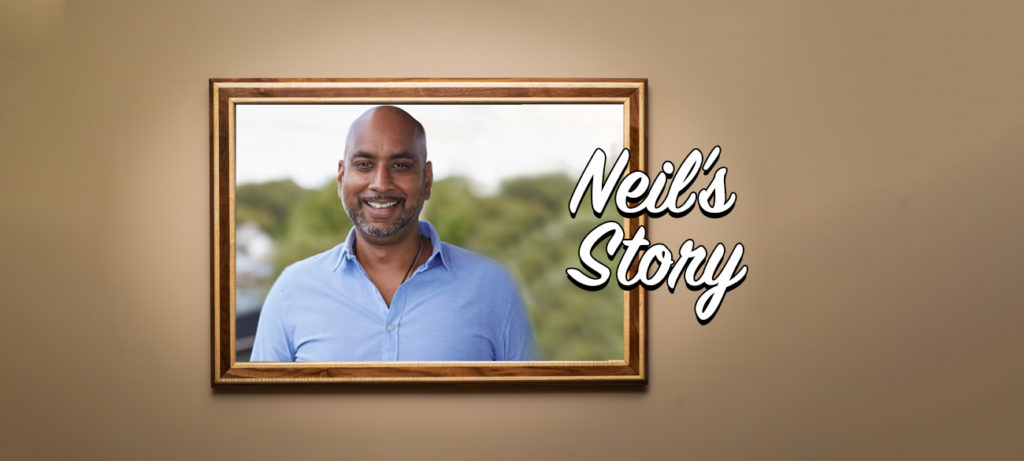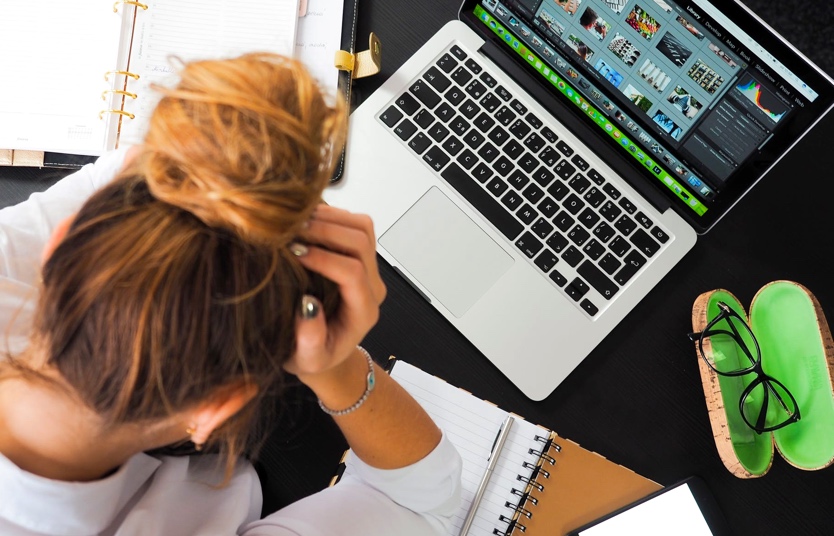Finding a way of adequately protecting both the UK’s health and wealth simultaneously during the pandemic has proved nigh on impossible. Overall, health has come first, leading to a total of four months in national lockdown and substantial restrictions at other times. But for Neil Shah, the wonderfully-titled Chief De-stressing Officer of The Stress Management Society, this strategy has been less than balanced, it’s come at great cost and ultimately our health has suffered as a result.
Speaking from his home in north London during the second period of lockdown, Neil says that “Covid in general has had a tremendous impact on my life. The majority of the international projects that we were running have been shelved or canned, I’ve not been able to travel, we’ve not been able to work, it’s had an 80% impact on our revenue. As a small organisation in the non-profit sector, that’s had a tremendous impact. It’s affected my personal relationship too, in many different areas of my life I’ve been affected.”
Normally, The Stress Management Society (SMS) would be involved in helping to manage mental health issues. As the year has progressed, organisations that would have been developing the wellbeing of their workforce, putting together robust plans to build their culture, have pulled back from these projects, throwing their resources at managing Covid instead. “Even though such issues are higher priorities now, people just don’t have the capacity or the bandwidth to look at them”, Neil says.
Britain under a microscope
Nevertheless there have been generous donations, enabling SMS to assist with projects that would normally fall outside their remit. They have been supporting children who have been excluded from school and who are no longer entitled to school meals. Neil says “at the moment we’re running programmes to feed kids in Lambeth because they’re not getting fed.” Inevitably this year has put modern British life under a microscope. “If nothing else comes out of this”, Neil says, “we will have had a chance to look at the things that many of us don’t want to look at.”
Neil is clearly frustrated with the government’s response to Covid. His concerns stem from what he perceives as an ongoing crisis in mental health, exacerbated by two phases of national lockdown. He believes these contributed to soaring levels of anxiety. In June, the Office for National Statistics found that the number of people reporting high levels of anxiety was “sharply elevated”. While the pandemic has claimed more than 60,000 UK lives, Neil says anxiety has touched many millions more.
This year there has been a rise in domestic violence and abuse, and increasing numbers of children have been placed into care. Neil believes the current level of uncertainty “has had a huge unsettling effect for all of us”, magnified by what he describes as a “narrative of fear” associated with Covid, reaching “the point where we are scared to leave our houses, scared to hug and kiss our loved ones.”
“People’s pressure valves are building”
Neil believes the focus on physical health has contributed to a range of economic problems. “I’m not suggesting we don’t take this seriously”, he says in regard to managing the virus, nevertheless he believes much of the current anxiety is a direct result of what he describes as “poor economic decisions”. Consequently, he says, “people’s pressure valves are building and that’s really concerning for me. I think longer term, if we cannot find a road back to some sense of normality we’re going to have more people whose pressure valves will explode, and that could be through physical manifestations – in more illnesses – or an increase in mental health conditions.”
Neil was one of 15 people who this year co-founded Recovery, a charitable organisation aimed at “restoring some kind of balance and having more of a proportionate response to all of the challenges we’re facing in our society.” A survey of 2,000 people, carried out on October 26 and 27 (the week before the second national lockdown began) on behalf of Recovery, found that 71% were more concerned by the impact of lockdowns and restrictions than catching Covid.
Neil is particularly concerned about the wellbeing of young people, for example students who “have been locked in halls, like prison cells”. He makes the point that the people least at risk from the physical symptoms of Covid are potentially most at risk from mental health issues. The more the economy falters, and the higher unemployment rises, the tougher it is for young people to make a start in life. “We might come out of this having reduced the infection rate”, he says, “but what are we coming out to? What is going to be left of the society we were all so accustomed to living in?”
Getting the economy moving again
Neil argues that our immune system is affected by stress, and that stress induced by declining economic circumstances is detrimental to our physical health – which in other ways we are going to such great lengths to protect. To ease the stressful impact on health, “balance and a proportionate response are required”, Neil says, “we need cool, calm heads, where we come together so that we can take an approach that allows us to mitigate all of the negative effects, not just one.” He’s calling for a joined-up approach that addresses all the major issues “because you cannot separate them.”
Recovery is a UK-focused campaign that seeks to create an open dialogue in five key areas, central to which is the plea to ‘get the economy moving for the sake of our children’. Neil believes there are safe ways to enable this, beginning with adequate risk assessments and using these to implement measures more flexible than the current restrictions, “we need to create a pathway to light at the end of the tunnel and at the moment there’s a real lack of clarity around that.”
In March, the UK response to Covid was partly based on modelling potential outcomes. Neil believes that since then we have acquired months of evidence. Instead of theoretical models, we can now adopt a more solid, empirical approach that could help to shape a disaster recovery plan. However, he believes that such a plan has still not been developed yet.
Neil is calling for an open debate on how we move forward, ensuring the economy can be allowed to recover – and with it the population’s mental health, “I want us to consider those who live hand to mouth, that when they cannot work they cannot feed their children, they cannot pay their rent. And that for me is the opportunity we have, to look at how we collectively move forward as a society to ensure we are creating a future that we are all able to benefit from.” Hopefully, the new vaccine will swiftly help to protect our physical health. Tackling Covid’s impact on our mental health however raises a different set of challenges. For Neil, the sooner we address these the better.






